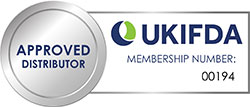
Case study: Lubricants / Transport Company
A well-known national road haulage business, has saved in excess of £40-45K per year by switching their engine oil to a high performance lubricant that is proven to combat acids, deposit formation and premature wear and tear.
Here we explore how putting more emphasis on seemingly small procurement decisions can have a big impact on operational efficiency and profitability.
The transport company, which works with blue-chip clients including FMCG providers such as Nestlé UK, often works to a critical collection and delivery window. To avoid interruption to schedules, the family-run business has invested in contingencies such as an on-site workshop to ensure its fleet is frequently attended to, and an annual replacement policy that means the average age of its 100 Iveco Stralis artic vehicles is just three years old.
When a pattern of premature turbocharger failures forced the transport company to start replacing the turbos on all of its fleet as a precautionary measure, every 200,000km, the team was perplexed and acutely aware of the additional cost to the business: in parts, unplanned downtime and loss of man hours.
An investigation showed the root cause to be a build-up of oil deposits from the engine oil. After consulting Certas Energy, technical advisors identified that Shell’s Rimula formulation offered the best, future-proofed fit for its Euro V engines. The company has achieved £40-45K worth of savings per year on parts alone and field trials extended to similar products within the Rimula range to ascertain further savings that could be made on its new Euro VI engines.
Lubricants typically represent a small percentage of total running costs but, as this case clearly shows, choosing the right lubricant could potentially claw thousands upon thousands back to the bottom line – in time.
The truth is that there is a tendency across the board to pay little attention to lubricant choice other than striving for the lowest cost. And, when problems arise, the starting point is to look at grander – often costly – solutions over the seemingly small changes that could make a big difference from a total cost of ownership (TCO) perspective.
Viewing lubricant selection purely from a commodity mindset invariably leads to a purely transactional relationship. Commercial vehicle fleets are high maintenance and keeping operations running smoothly is beyond the remit of a standard supplier. By choosing a lubricant supplier that combines technical know-how with high levels of service, fleet operators can be more confident in engine productivity and performance.
Certas Energy is Shell’s largest contracted lubricants distributor in the UK, bringing together the technical, product and customer service capabilities the transport sector needs to keep moving and keep costs down. With Shell’s annual investment of $1bn in research and development, road haulage companies supplied by Certas Energy can be assured the latest technologies are at work in their greatest investment: their fleet.
The Rimula product family provides offerings for the spectrum of Euro IV, V and VI vehicles. The lubricants have been optimised to significantly improve resistance to wear, deposits and oxidation – supporting fleet managers in addressing current and future challenges without having to switch formulation further down the line. Customers also have access to technical support services from Shell Lubricants including Shell LubeMatch and Shell LubeAnalyst.
By keeping one step ahead, Shell and Certas Energy can offer customers a service that is cost-competitive but, most importantly, ‘total cost of ownership’.






